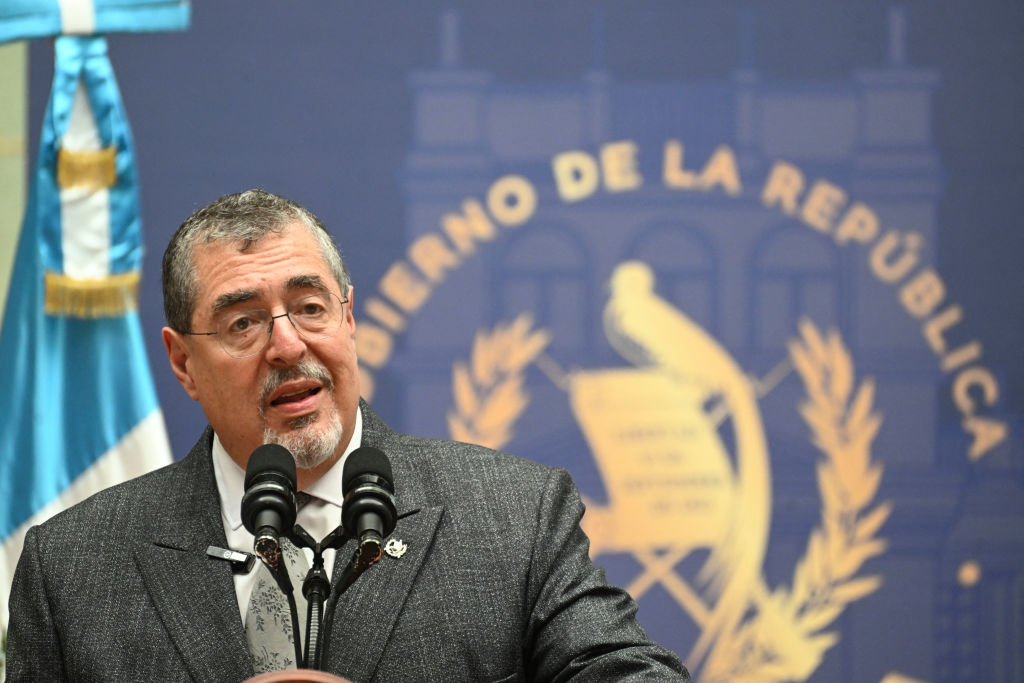The Road to Venezuela’s Elections: A Look at the Media, Public Opinion, and the Economy
The Road to Venezuela’s Elections: A Look at the Media, Public Opinion, and the Economy
AS/COA hosted a panel on Venezuela's upcoming October 7 presidential election, analyzing media access and freedom of expression, citizen demands and interests, popular support for the candidates, and the likely economic impact after the vote.
Speakers:
- Luis Christiansen, President, Consultores 21
- Alejandro Grisanti, Head of Research and Strategy for Latin America, Barclays Capital Inc.
- Carlos Lauría, Senior Americas Program Coordinator, Committee to Protect Journalists
- David Papadopoulos, Latin America Markets Team Leader, Bloomberg News (Moderator)
Summary
After nearly 14 years in office, President Hugo Chávez is seeking reelection. He faces perhaps his strongest contender yet, Henrique Capriles Radonski, the 40-year-old candidate of the opposition’s Democratic Unity coalition and former governor of Miranda state. A panel of experts analyzed access to the media and freedom of expression, citizen demands and interests, popular support for the candidates, and the likely economic impact of the October 7 elections.
The Media
Carlos Lauría from the Committee to Protect Journalists (CPJ) discussed how press freedoms and freedom of expression in Venezuela deteriorated during Chávez’s administration. Quoting an August CPJ report, Lauría explained how the Chávez administration used an “array of legislation, threats, and regulatory measures to gradually break down Venezuela’s independent press while building up a state media empire.” He also mentioned that since 1999, private media in Venezuela has been obligated to broadcast more than 1,600 hours of “chain messages,” or cadenas, such as the presidential speeches that last several hours. Many of these measures violate inter-American standards of freedom of expression by sanctioning opposition media to reduce dissent. They also limit coverage of key issues such as violence, inflation, and the energy sector, which are crucial issues in the upcoming elections.
Public Opinion
For the first time in almost 14 years, Chávez is running against an opponent with a chance at victory. The latest poll published by Consultores 21 indicates that Capriles has 48.1 percent of voter support, with Hugo Chávez at 46.2 percent.
Top concerns for voters include crime and insecurity, but unemployment and the high cost of living are also priorities. According to Consultores 21 President Luis Christiansen, the government’s social programs, or misiones, also play a fundamental role in voting intentions. Over the past six months, support for the misiones and other government programs stabilized, while Capriles’ promise to maintain the social programs and tackle the country’s economic issues helped to reduce the gap between the two candidates.
Polls leading up to the election show varied numbers. Christiansen urged those following the elections to focus on the similarities that exist among these surveys. All of them show a reduction in the number of undecided voters, indicating that Chávez could be losing ground as Capriles slowly gains votes.
Economic Landscape
Contrary to what some analysts say, Venezuela is not living beyond its means, said Alejandro Grisanti of Barclays Capital. Record oil prices have allowed the country to close 2012 with a surplus, which has led Venezuela to export much more than it imports despite its tight currency control regime. But regardless of this bonanza, a crisis of confidence caused by expropriations prevents the private sector from investing in the country. Rather than a series of measures to adjust the economy, or a paquetazo, Grisanti said Venezuela is in need of a transition towards a new economic policy that taps into the huge cash reserves of the private sector.
Capriles has made clear that should he win, his government would work to regain the confidence of investors at home and abroad. According to Grisanti, this would reduce the current country risk and bring bond prices up. He also explained that if the new government maintains the current organizational structure of the state-run oil company Petróleos de Venezuela (PDVSA), the industry’s growth would accelerate and production could increase by at least 1.5 million barrels a day.
The Campaigns
Chávez’s health was a concern earlier in the campaign, as he is recovering from cancer. Despite the president’s condition and the unevenness of the campaign playing field, polls indicate that the outcome of the election could be favorable for the opposition. Christiansen believes that this points to a shift in voters’ demands, and indicates that Capriles’ campaigning efforts have been successful. Chávez’s capacity to engage the electorate has been limited due to his condition, Christiansen said.






